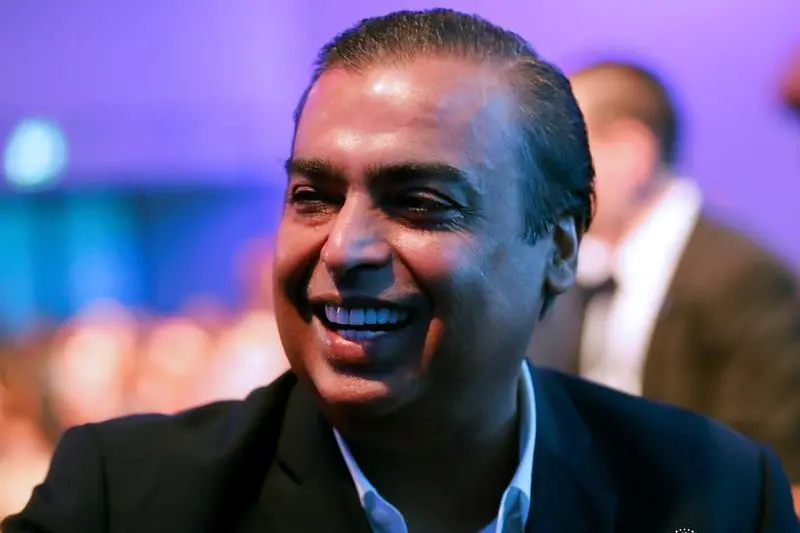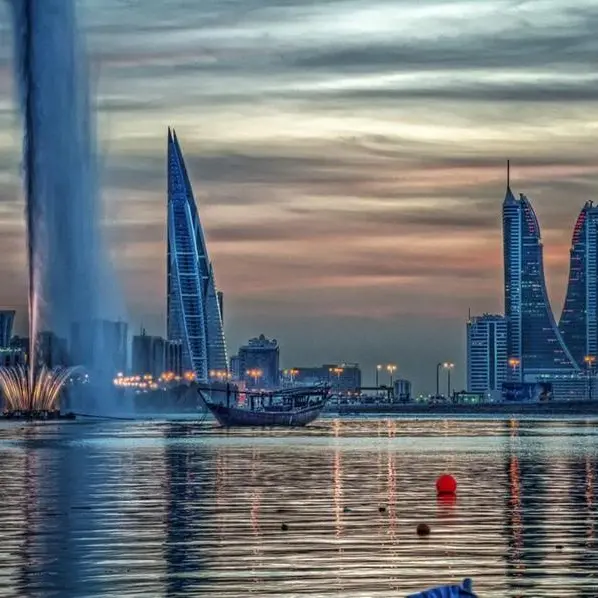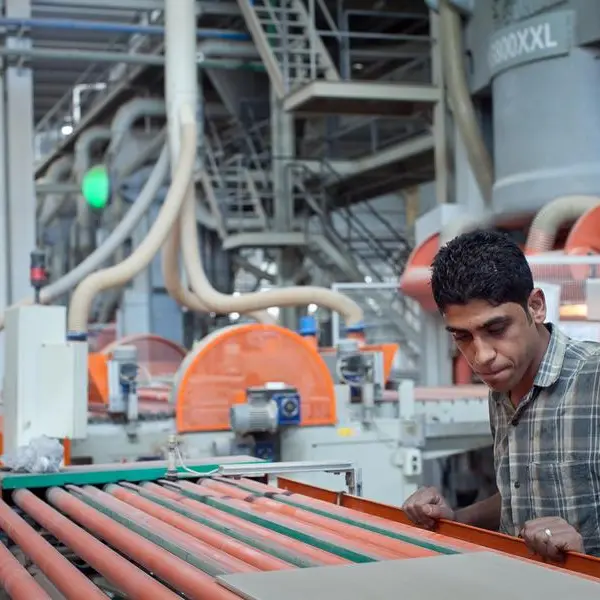PHOTO
(The author is a Reuters Breakingviews columnist. The opinions expressed are her own.)
MUMBAI - It all comes back to one person. Mukesh Ambani, India’s richest man, is emerging as a modern John D. Rockefeller. The American industrialist amassed huge wealth and power through the rail-and-energy cartel he built in the 19th century. Standard Oil was eventually broken up, giving birth to U.S. antitrust law. For Ambani, data is the new oil. His $185 billion Reliance Industries already comprises India’s largest telephone operator, Jio, plus the country’s biggest retailer. And with the backing of America’s own technology monopolists, he will be able to accumulate power until he’s told to stop.
A well-heeled Indian consumer can pass a day spending heavily with Reliance. Eat breakfast while catching up on the news on CNBC TV18, CNN News18, and Forbes India, via Jio apps on a JioPhone on the Jio mobile network. Connect with an aunt on Zoom-like JioMeet and buy movie tickets on Reliance-backed BookMyShow through a JioFiber broadband connection. Head to the shops, pop into Hamleys to buy a toy gift or into Trends for some fast fashion. Drop by Reliance Smart for groceries. Fill up the car at the Reliance petrol pump. Back home, place an online order for cupboard basics on JioMart and settle in for an evening of cricket, cheering on the Reliance-owned Mumbai Indians.
Such sprawl is making some in India queasy. Bankers complain he’s decimating the competition and using his sheer clout to force them to pay to play in a twist on the rent-seeking behaviour typical during the decades-long “licence raj” that ran up until India’s economic liberalisation in the 1990s. New partners like Facebook and Google, which contributed to a recent $20 billion fundraising by Reliance’s digital unit Jio Platforms, will also go head-to-head with Ambani in payments and more. Jeff Bezos’ Amazon was supposed to provide competition but is reported to be weighing up a stake in Reliance Retail as it looks to bring in strategic investors.
THE WELCOME MAVERICK
A more generous view casts Ambani as a welcome maverick, shaking up entrenched industries and keeping incumbents on their toes. Jio, launched as a telecom operator four years ago, accelerated the rollout of 4G in a country where dropped calls and patchy mobile service are the norm. Consumers have benefitted: data costs in India are now the cheapest in the world, rather than the most expensive. Jio has won almost 400 million subscribers, helped by court rulings that weighed on indebted rivals like Bharti Airtel BRTI.NS and Vodafone Idea . The telecommunications regulator helped too, allowing Jio to provide services for free for close to a year. From about 10 private operators, barely two and half remain. In online retail, Ambani is taking on more established marketplaces like Amazon and Walmart-owned Flipkart.
But Reliance is starting to walk a fine line. The conglomerate is linked to a dizzying array of potential acquisitions that will expand and deepen its reach. Ambani’s retail empire is the top in brick-and-mortar, and is eyeing a purchase of the number two, Kishore Biyani’s Future Group. Never mind that Reliance Retail is already four times bigger than its target and larger than all the other major retailers combined. Another mooted target is Urban Ladder, India’s online answer to furniture giant Ikea. What’s more, Reliance has been touted as a buyer for the Indian operations of TikTok, the short-video app caught in a global backlash thanks to its Chinese ownership.
Even if competition authorities awaken, assessing dominance is not straightforward. Market share is only one indicator. Ambani gets nearly $1 out of every $4 spent in wide-aisled, neatly stacked “formal” retail. But if he increases prices or starts to churn out rubbish, cost and quality conscious consumers will still have alternative options, including from the ramshackle “informal” mom-and-pop-stores that dominate in the overall $822 billion shopping market. Arguably Ambani is only just starting to build the scale and deep pockets needed to compete with Western-backed retail giants and is empowering small store owners to survive by bringing them online, at least through JioMart, so competition authorities acting now also risk stymieing homegrown innovation.
NO STANDARD
Things are hardly better in more developed markets. The power amassed by Silicon Valley giants has attracted plenty of attention over the past decade but has not been effectively reined in or limited. China has warned on monopolistic practices but allowed Alibaba BABA.N 9988.HK and Tencent’s 0700.HK near-duopoly to thrive. The central bank is urging an antitrust probe into their affiliate payments services, Reuters reported in July, but it’s late in the day to make room for new entrants. And New Delhi, like Beijing, might find that fewer, domestic players are easier to control.
Nor is Ambani the first to enjoy such dominance in India. State enterprises have led the way since the nation’s independence in 1947, making a mockery of the archaic Monopolies and Restrictive Trade Practices Act which was replaced by the Competition Act in 2002. Meanwhile, the Tata family is in the business of steel, salt, cars, tea, hotels, jewellery, satellite television and more. Its name is linked to the purchase of national carrier Air India as the government tries to privatise the globe-trotting reminder of Indian inefficiency. Tata boss Natarajan Chandrasekaran is even planning to launch a “super- app” for the wider group. And few complain or worry that the $28 billion Maruti Suzuki sells more than half of India’s passenger vehicles.
Ambani’s digital and consumer-facing businesses, with strong investor backing, make him the flavour of the month. And although India is probably some way off from the moment when antitrust authorities represent any significant threat to Ambani’s empire, the tycoon could yet stumble. He has had astonishing success in telecoms but there’s no guarantee he can replicate that everywhere: early reviews of JioMart are poor and Reliance itself has had trouble hosting earnings presentations on JioMeet. From Yahoo to Myspace there are plenty of big global tech brands that faded on their own accord. But with India’s politicians increasingly pushing the idea of a self-sufficient nation, there’s every chance that an unchecked Ambani, like Rockefeller, will lay waste to competition.
CONTEXT NEWS
- India’s Reliance Industries said on Aug. 18 that it had bought a majority stake in online pharmacy Netmeds for 6.2 billion rupees ($83 million).
- Separately, China's ByteDance is in early talks with Reliance for an investment in its video-based app TikTok's business in India, TechCrunch reported on Aug. 13, citing sources. The two companies began conversations late last month and have not reached a deal yet, according to the report.
- Reliance is also looking to pay up to 270 billion rupees, about $3.6 billion, to buy the Indian retail chains owned by Future Group, Mint newspaper reported on July 29, citing two sources familiar with details of the deal.
(The author is a Reuters Breakingviews columnist. The opinions expressed are her own.)
(Editing by Rob Cox, Jamie Lo and Sharon Lam) ((una.galani@thomsonreuters.com; Reuters Messaging: una.galani.thomsonreuters.com@reuters.net))





















